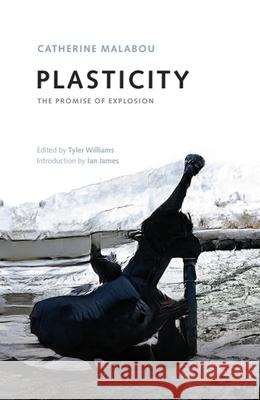Plasticity: The Promise of Explosion » książka
topmenu
Plasticity: The Promise of Explosion
ISBN-13: 9781474462112 / Angielski / Twarda / 2022 / 352 str.
Plasticity: The Promise of Explosion
ISBN-13: 9781474462112 / Angielski / Twarda / 2022 / 352 str.
cena 538,76
(netto: 513,10 VAT: 5%)
Najniższa cena z 30 dni: 495,76
(netto: 513,10 VAT: 5%)
Najniższa cena z 30 dni: 495,76
Termin realizacji zamówienia:
ok. 22 dni roboczych.
ok. 22 dni roboczych.
Darmowa dostawa!
Kategorie BISAC:
Wydawca:
Edinburgh University Press
Język:
Angielski
ISBN-13:
9781474462112
Rok wydania:
2022
Ilość stron:
352
Oprawa:
Twarda
Wolumenów:
01











